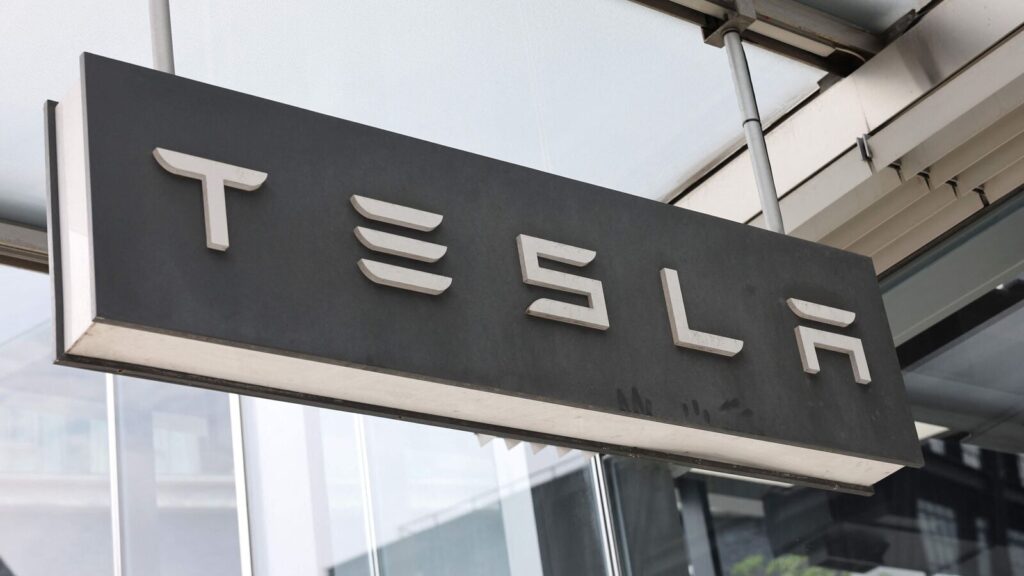Hedge funds rushed to short the electric car maker Tesla’s stock just before it released a series of numbers that sparked a big rise in the company’s stock price.
About 18% of more than 500 hedge funds tracked by data provider Hazeltree had short positions in Tesla shares as of the end of June, the highest in more than a year and down from just under 15% at the end of March, according to data seen by Bloomberg.
Also Read | Tesla vs Tesla Power: MD Khurana confident on arbitration and trademark ownership issues
Those contrarian bets are now threatening to cost the hedge funds that backed them.Tesla’s latest auto sales results, released on July 2, showed that second-quarter deliveries beat analysts’ average expectations, even as sales fell. Investors pounced on the news, sending the company’s stock to a six-month high. Tesla shares are now up about 40% since the beginning of June.
Tesla is likely to see improved profit margins due to lower production and raw material costs, according to Morningstar’s Seth Goldstein, one of the top three analysts covering the stock in Bloomberg’s stock recommendation rankings.
He said in a client note that the company will likely “return to profit growth” next year, but added that a key factor will be how Tesla handles the increasing market focus on affordable electric vehicles.
READ ALSO | Elon Musk will be the biggest billionaire loser in 2024 but will remain the richest man in the world
These developments add to ongoing uncertainty about how to treat the EV market as a whole, given the conflicting dynamics that are swirling around. The EV industry, a key pillar of the global race to achieve net-zero emissions by 2050, benefits from generous tax credits. But it also faces significant obstacles, including tariff wars and identity politics, which have led some consumers to reject EVs as a “woke” form of transportation.
In the United States, Donald Trump has said that if he is re-elected in November, he will repeal the current law supporting battery-powered cars, calling it “insane.” However, according to Elon Musk, CEO of electric vehicle giant Tesla, Trump is a big fan of Tesla’s Cybertruck.
Meanwhile, Tesla’s list of internal turmoil is long: In April, Mr. Musk told employees to prepare for major job cuts, including in sales, and production ramp-up of the Cybertruck, Tesla’s first new consumer model in years, has been delayed.
Also Read | Elon Musk’s Tesla backs out of EV push in India, reports say
That has led some hedge fund managers to consider Tesla shares a no-go altogether. Tesla is “a very difficult position for us to take,” said Fabio Pesce, chief investment officer at Ambienta, which oversees $700 million in assets including the Ambienta x Alpha hedge fund.
Essentially, he said, it’s not clear whether investors are dealing with “a top company with great management” or “a troubled franchise with poor corporate governance.”
But Pesce said that a Trump victory would be “very positive for Tesla” but “certainly not great for EVs or renewable energy in general,” because Trump is expected to “impose massive tariffs on Chinese companies,” which would be “advantageous” for Tesla, Pesce said.
Investors are likely to finish 2023 with a further exit from green stocks in general, and EVs in particular, according to a Bloomberg Markets LivePulse survey. Nearly two-thirds of 620 respondents said they plan to stay away from the sector, and nearly 60% expect the iShares Global Clean Energy exchange-traded fund (ETF) to continue to fall in 2024. The ETF has fallen 13% so far this year after dropping more than 20% in 2023.
The Bloomberg Electric Vehicle Price Return Index, which includes BYD, Tesla and Rivian Automotive, is down about 22% so far in 2024.Meanwhile, metals and minerals needed to make batteries are at the mercy of a wildly volatile commodity market, with speculators often trying to capitalize on shifts in supply and demand to make a quick buck.The price fluctuations have forced some battery makers to adapt to a market where profit margins are severely squeezed.
This has led to pressure from shareholders to cut back on capital investment in EVs, with Porsche being the latest example. Polestar Automotive Holding UK, a luxury EV maker, has lost nearly 95% of its value since being separated from Volvo Cars two years ago. Fisker, another luxury EV maker, has also filed for Chapter 11 bankruptcy protection after losing its value since last year.
Soren Aandahl, founder and chief investment officer at Texas-based Blue Orca Capital, said he is avoiding shorting the EV space for now because “valuations are so depressed in the space.” He noted that EVs are no longer an obvious contrarian bet because investors tend to do best if they get in “when they’re a little bit more expensive.” But at this point, “a lot of the air has already let out of the balloon,” he said.
But Eirik Hoegner, deputy portfolio manager at the $2.7 billion hedge fund Clean Energy Transition, suggests there may be more trouble ahead for the EV industry as a whole. He says there are “too many” startups that are still “too small” and have “too low” gross margins. As a result, the supply and demand dynamics in the EV market “remain very negative.”
“Ultimately, I think we need to see more bankruptcies for the market to start to become healthier,” Hogner said.



